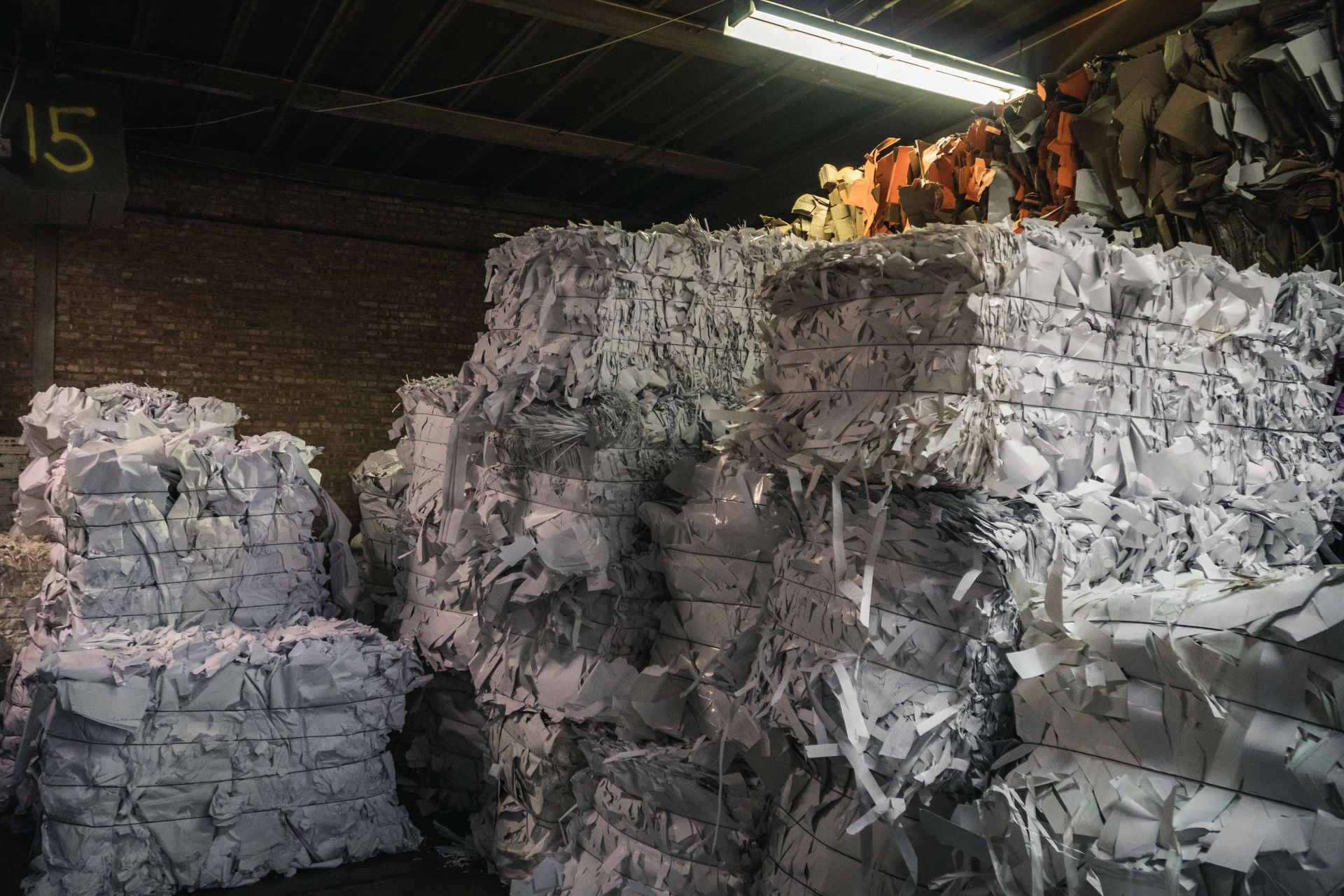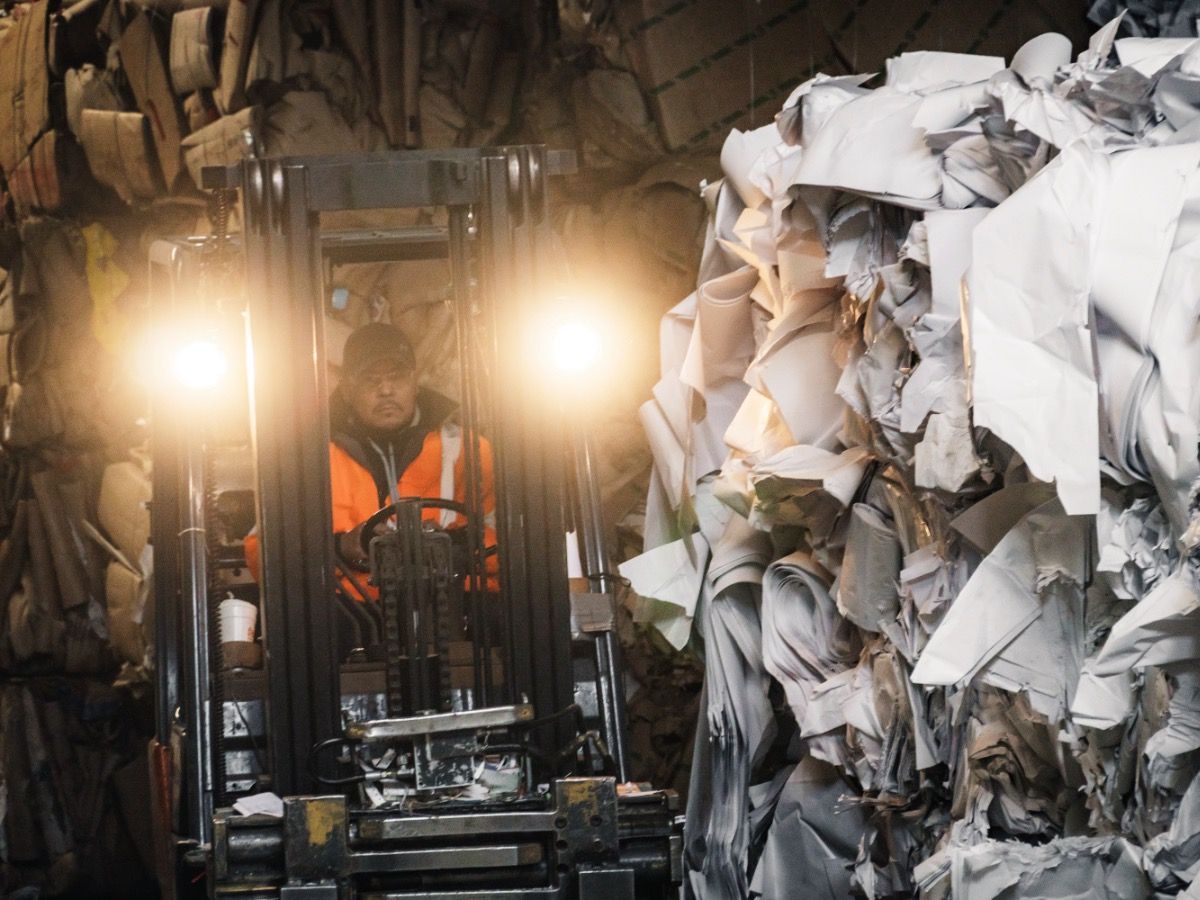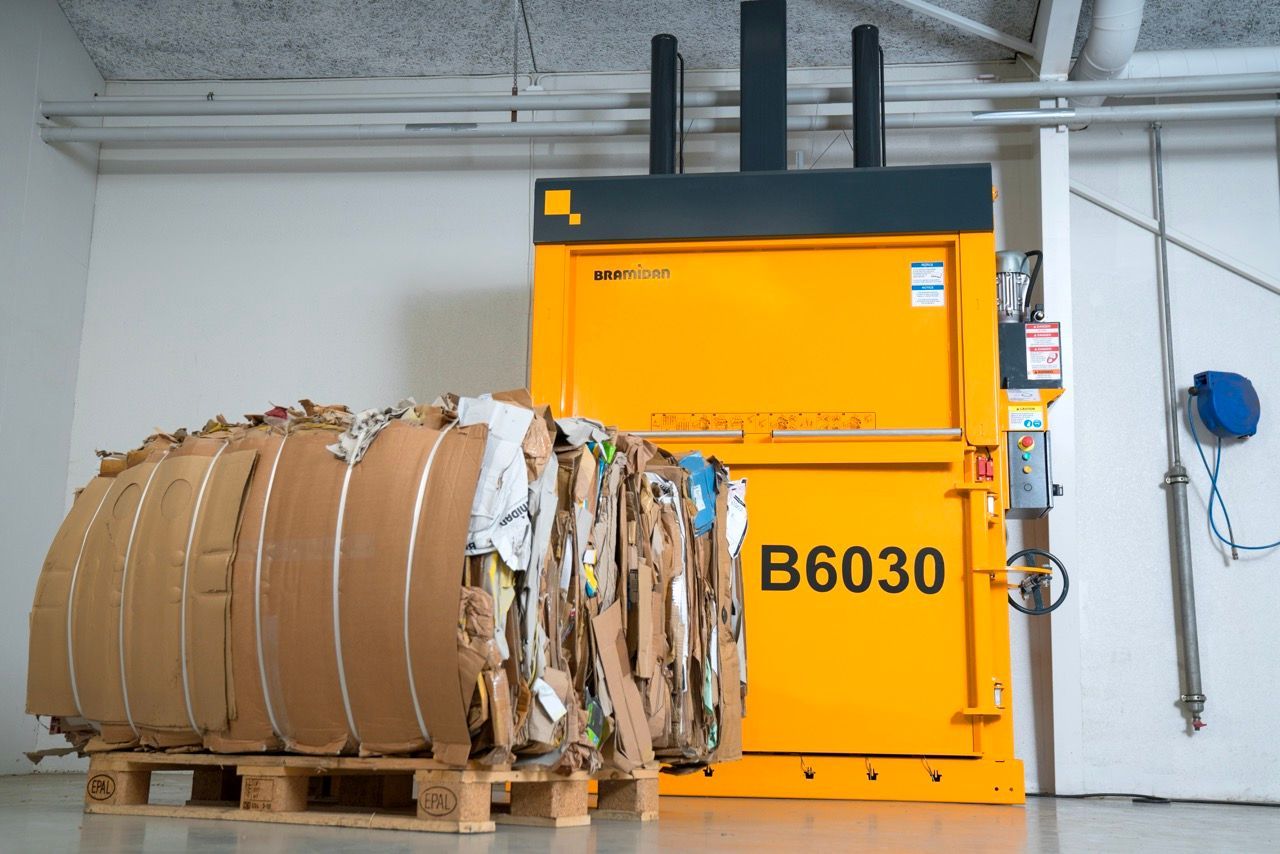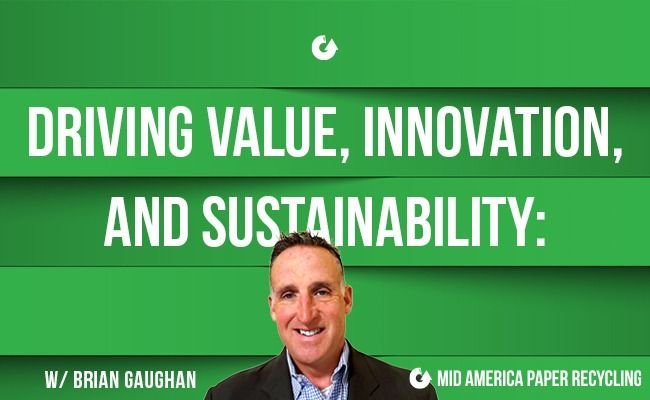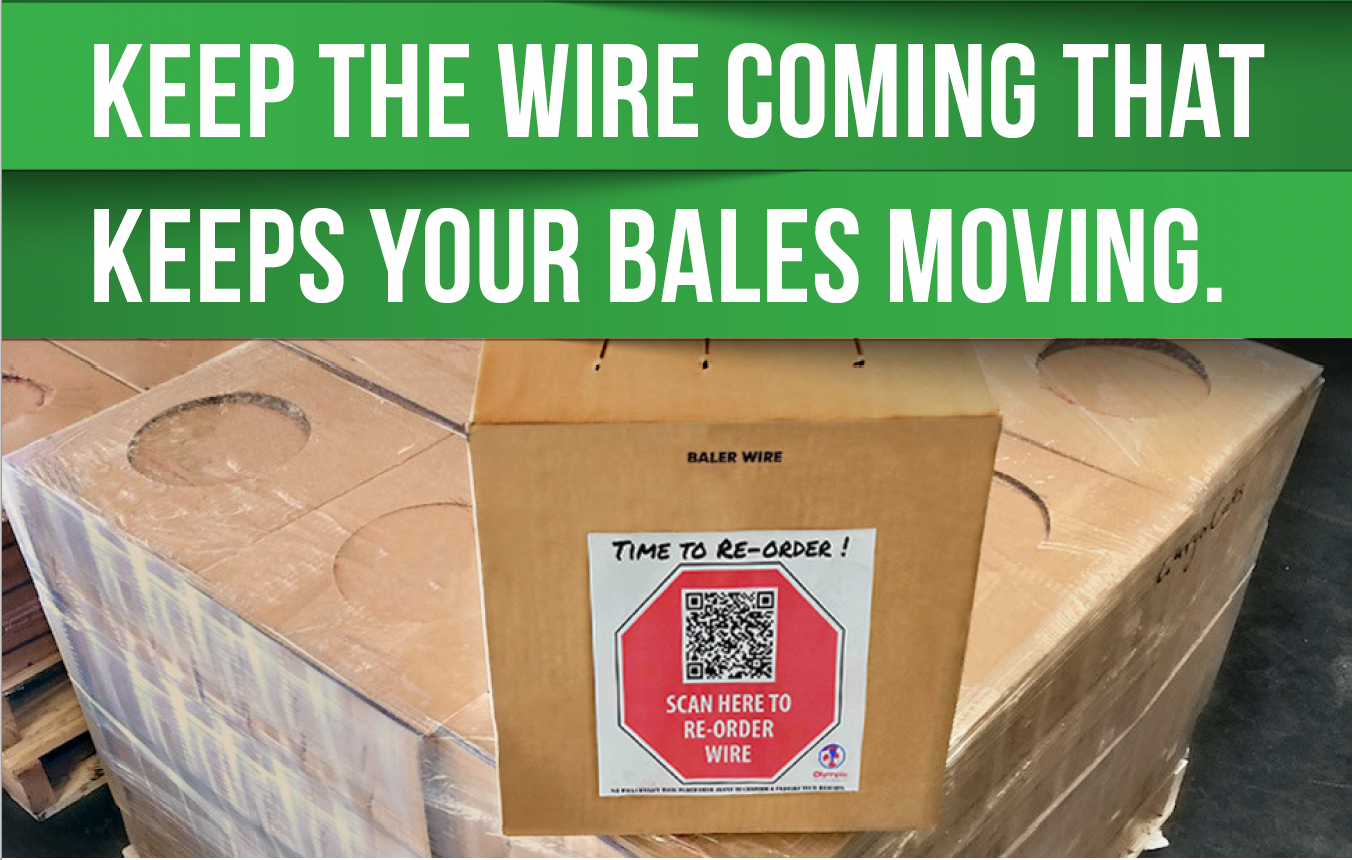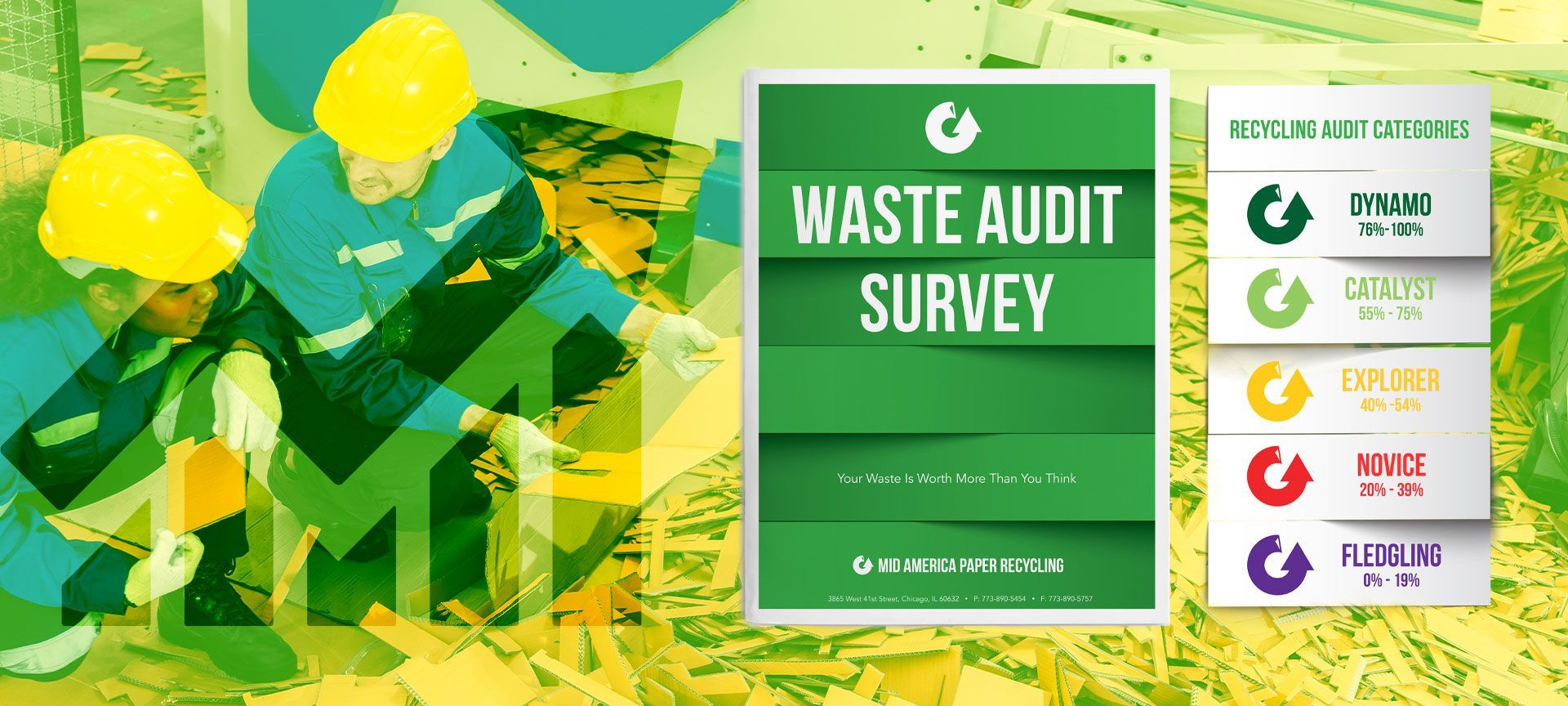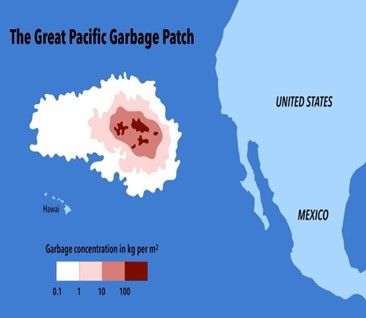What 142 Businesses Taught Us About Recycling Practices in 2025
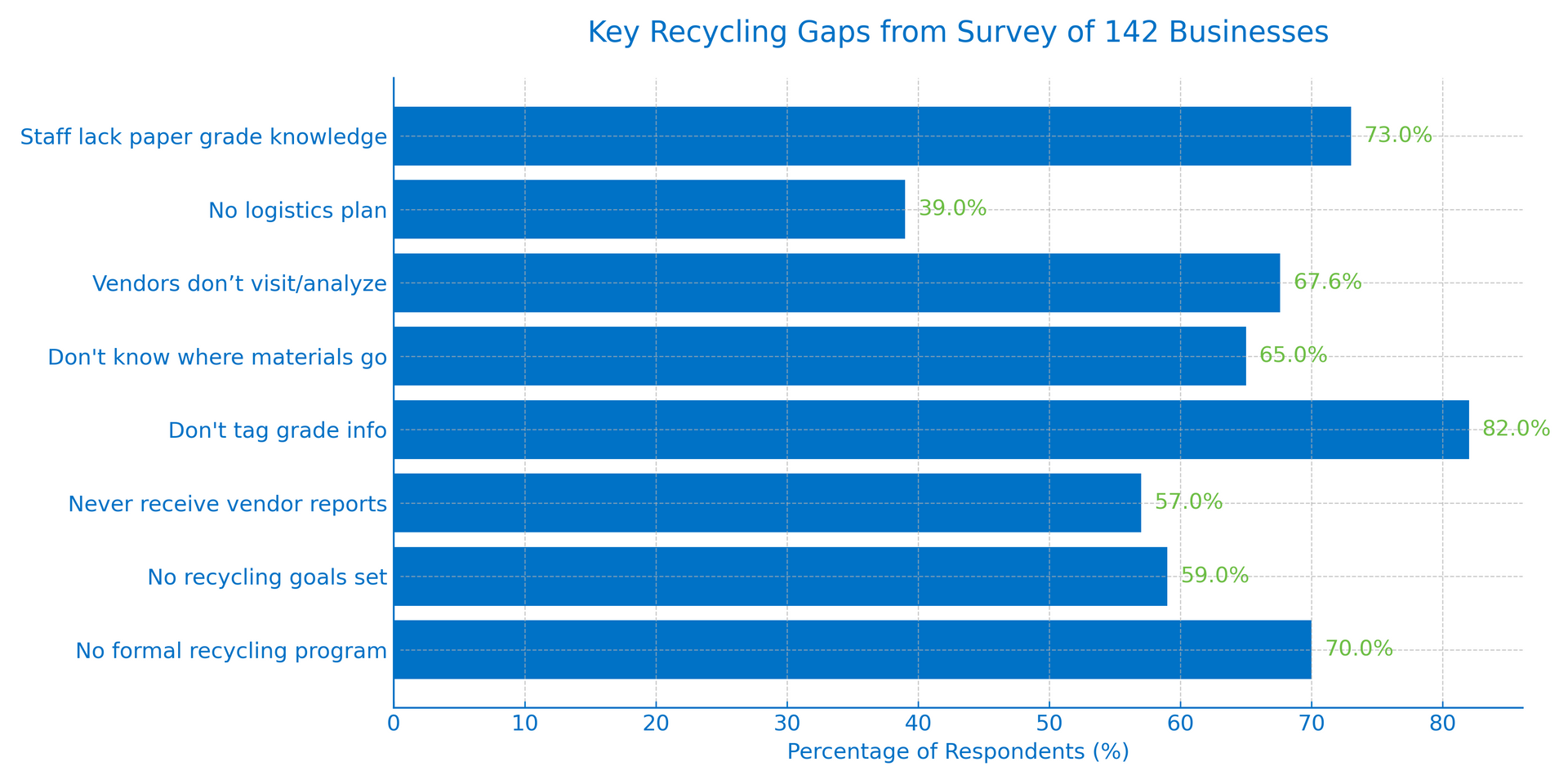
At Mid America Paper Recycling, we’re passionate about helping businesses turn their waste into value. But to do that, we need to understand where companies stand today when it comes to recycling. That’s why we surveyed 142 businesses across manufacturing, distribution, packaging, and printing industries to get a clearer picture of current recycling habits and challenges.
The results were eye-opening. While most companies want to improve sustainability, few have the structure, visibility, or vendor support in place to make that vision a reality. Below, we dive into the key takeaways—and the major opportunities that forward-thinking companies can capitalize on.
1. Goals Without a Game Plan
Recycling programs are only as strong as the systems supporting them. Unfortunately, many companies are operating without a formal strategy. Nearly 70% of businesses surveyed have no structured recycling program in place—meaning no team members are accountable, no metrics are tracked, and no progress is measured.
In fact, nearly half (47.9%) never review their recycling efforts, and 59% haven’t set any recycling goals in the past year. Without regular evaluation, even well-intentioned programs become stagnant.
Perhaps most telling: only one in four companies have a continuous improvement plan for recycling. That means the majority are missing out on the opportunity to reduce waste, increase material recovery, and boost revenue through optimized recycling efforts.
Takeaway: Companies that treat recycling as a strategic initiative—just like production or quality—stand to gain a competitive edge in both cost savings and environmental performance.
2. A Lack of Visibility is Holding Companies Back
Another consistent theme in our research: a startling lack of data and visibility. More than half of companies never receive recycling reports from their vendor, meaning they don’t know what’s being collected, what it’s worth, or where it's going.
Additionally, 82% don’t label their loads with grade information, and nearly half don’t weigh their loads before they leave the facility. This makes it nearly impossible to validate vendor payments or understand the value of what's being shipped.
Without clear reporting and tracking, companies are flying blind. Valuable materials may be leaving money on the table—or worse, being landfilled—simply because no one is measuring performance.
Takeaway: Implementing basic documentation practices, such as load tagging, weighing, and AI-enhanced reporting, provides the clarity needed to improve operations and strengthen recycling ROI.
3. Waste Is Taking Up More Than Just Time
Floor space is one of the most valuable assets in any plant or warehouse—and too much of it is being consumed by waste. Many businesses store gaylords of loose trim, large rolls, and bales of scrap that sit idle waiting for pickup.
Our survey found that only 36% of companies use drop trailers, which can help remove materials from the floor in real-time. Worse, 39% have no logistics plan at all, meaning waste piles up, blocking workflows, increasing labor costs, and reducing safety.
Companies often underestimate how much waste management can erode their operational efficiency. Labor hours lost to moving scrap, managing pickups, and clearing floor space quickly add up.
Takeaway: With trailer spotting and a streamlined logistics plan, businesses can free up space, reduce risk, and create a more efficient workflow—while also improving their recycling program.
4. No One’s Driving the Bus
Who’s in charge of your recycling program? For 29.6% of companies, the answer is “no one.” And even when someone is technically responsible, they may not have the knowledge needed to improve it.
Only 27% of employees involved in recycling are familiar with paper grades, and 65% of respondents didn’t know where their materials go after pickup—whether to a processor, a broker, or a landfill.
Takeaway: Recycling programs perform best when there’s clear ownership, employee education, and active vendor engagement to keep things moving in the right direction.
5. Recycling Vendors Are Missing in Action
One of the most surprising findings? 67.6% of companies said their recycling vendor doesn’t visit their facility or analyze their waste stream. In many cases, service is limited to pickups and payments, with little communication or strategic input.
As a result, over half of respondents said their service did not meet expectations, and 35% rated vendor performance as poor when it came to either service, payment, or responsiveness.
Takeaway: A strong recycling partner doesn’t just haul away waste—they help you identify opportunities, solve problems, and generate measurable value.
Recycling Isn’t Just a Line Item—It’s a Strategic Opportunity
This research reveals what many in the industry already feel: recycling is full of untapped potential. But to unlock it, businesses need more than good intentions—they need structure, insight, and a partner who’s committed to delivering value.
At Mid America Paper Recycling, we help clients do exactly that. From waste audits and reporting to logistics support and paperboard mill partnerships, we build recycling programs that are smarter, cleaner, and more profitable.
If your current approach to recycling feels like a missed opportunity, let’s talk.
📋 Start with our 10-minute Waste Audit and see what’s possible: https://www.midamericapaper.com/waste-reduction-audit
Let’s make recycling work harder for your business together.
